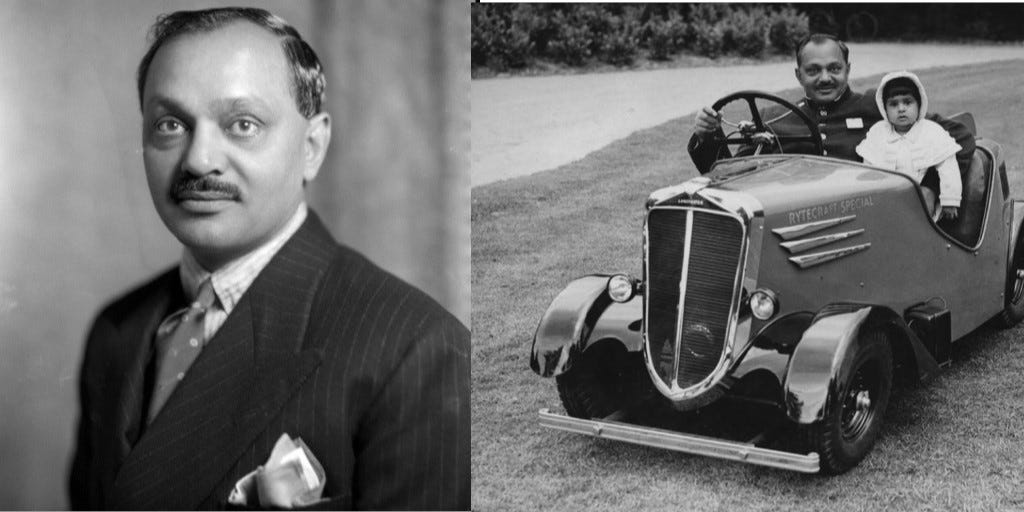The Indian King Who Saved 1000 Polish Children in World War II
Maharaja Digvijaysinhji Ranjitsinhji Jadeja is called the ‘Indian Oskar Schindler’ for his selfless act of saving 1,000 Polish children during WWII
A Little-Known Act of Kindness
“It was our little Poland in India. We will be forever grateful,” says Wieslaw Stypula, a Polish survivor, now 88 as he fondly remembers his time in India where he as an orphan was able to have a proper childhood after fleeing from war-torn Poland during World War II.
That said, when we talk about World War II, only heart-wrenching episodes of destruction, barbarity, and suffering come to our minds. Yes, the fact that it was a cruel war cannot be overstated. But in the midst of all the devastation going around, there were small, little acts of kindness that changed people’s lives and are still remembered more than 75 years after the war.
And one such act of kindness unfolded in 1942, in India which brought two communities, Indians and Jews, together to witness a hidden, unknown chapter in history that was lovingly called the ‘Little Poland in India’.
And it all started with an Indian Maharaja Digvijaysinhji Ranjitsinhji Jadeja, also known as ‘Jam Sahib,’ who helped save the lives of 1,000 Polish children looking for refuge after fleeing war-torn Poland.
As the children disembarked from the ship and reached Maharaja’s Nawanagar city(currently part of Gujarat state, India), he welcomed them with open arms and simply said.
“Do not consider yourself orphans. I am the father of all the people of Nawanagar, so also yours.”
The Story of Maharaja Digvijaysinhji Ranjitsinhji Jadeja
Not many realize that Poland is one of those unfortunate countries that was invaded by two cruel regimes, Nazi Germany and the Soviet Union during World War II as part of the Molotov-Ribbentrop Pact signed between the two powers to partition Poland.
Sixteen days after Hitler attacked the western border, the Red Army launched an eastern offensive. The combined attack devastated the country, leaving thousands of children orphaned within the country. These orphans were then forcefully relocated to miserable orphanages within the Soviet Union where many died of illness, malnutrition, and starvation.
It was under these circumstances, that amnesty was finally allowed by the Soviets in 1941 allowing the orphans to travel to other countries to seek refuge. As the ships carrying the orphaned children left the Soviet Union, they were denied entry in most of the ports while sailing from Iran to Bombay (Mumbai). Times were bad and no country wanted to take responsibility.
As the ship entered Mumbai, the plight of the children reached the ears of Maharaja Digvijaysinhji Ranjitsinhji Jadeja, the king of the princely state of Nawanagar. The British in India were not interested in taking them, but the Maharaja intervened and volunteered to provide the children with a home in his town, against the British will.
The kind ruler then proceeded to use his own personal money to build the Balachadi camp for the children about 25 km (15 miles) from the city of Jamnagar. The camp had more than 60 buildings, including a chapel, laundry rooms, a stage to hold Polish cultural programs, a community center to hold Saturday evening dances for growing adults, plus sports grounds.
The children were provided with food, clothing, and medical care. A special library was set up with Polish books so that they can keep in touch with their culture. The King even brought cooks from Goa so that ‘similar’ Polish food can be provided to them.
The children also played football, volleyball, and hockey, and even went camping. The Maharaja even converted his palace into a school so that education can be provided to the children. The children stayed for 4 years till 1946 and they were the best childhood years they ever had.
When the war ended, the orphans had to return to Europe. Today the survivors still recollect the Maharaja’s personal send-off at the Jamnagar railway station and the tearful farewell between the king and the children that remains unforgotten to this time.
Poland Still Remembers the Kindness
Poland has not forgotten the generous Maharaja who is still remembered today.
He was posthumously awarded the Commander’s Cross of the Order of Merit by the Polish President. Poland has also named the Maharaja the Honorary Patron of the popular Warsaw Bednarska High School. In 2013, the Government of Poland inaugurated the ‘Good Maharaja Square’ in Warsaw.
Yes, some people still argue that the Maharaja had the resources to be generous. But one should never forget that he did all this when the world was at war, India was in severe famine and drought and the British colonial government was against his decision. It was one man’s generosity that changed the destiny of a thousand people.
They say, kindness never goes out of fashion and this is one example of a kind act being remembered 75 years after the brutal war.
Sources
· How One Maharaja Helped Save the Lives of 640 Polish Children and Women During World War II
· How An Indian Maharaja Helped Save The Lives Of Thousands Of Polish People During World War II
· Why Was a School in Poland Named After an Indian Maharaja?
· An Indian Maharaja’’s Polish Legacy
· Know about India’s ‘Good Maharaja’ who saved lives of Several Polish Refugees





